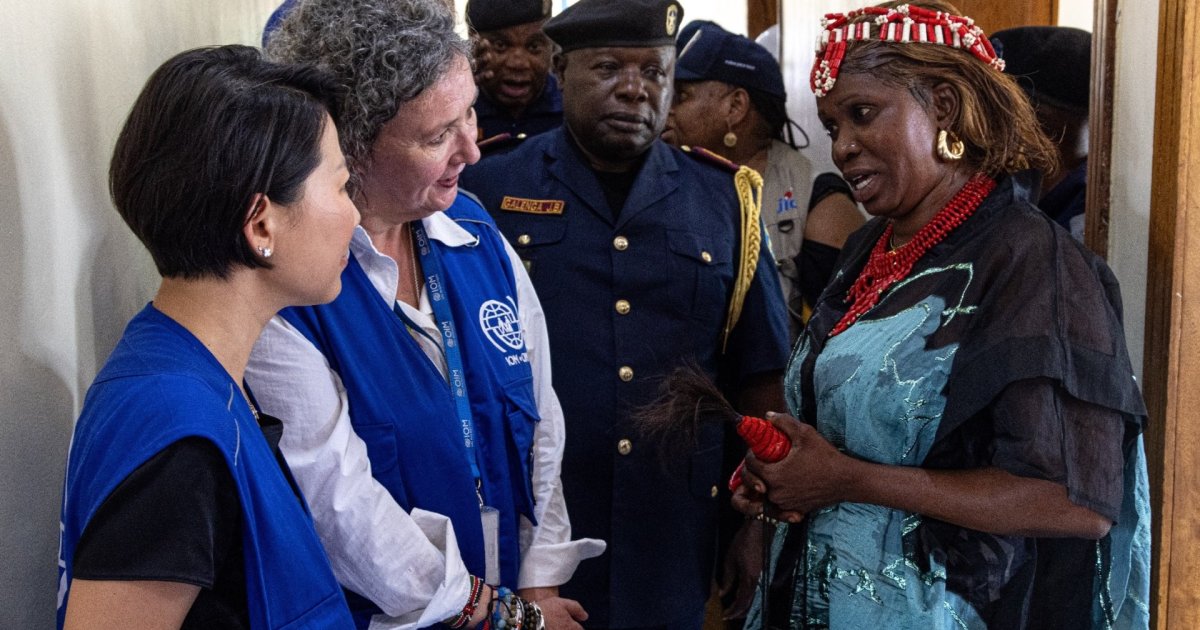
Geneva/ Kinshasa, 1 May 2025 – During a visit to the Democratic Republic of the Congo (DRC), International Organization for Migration (IOM) Deputy Director General for Management and Reform SungAh Lee called for urgent and sustained action to alleviate the suffering of millions already displaced by conflict in the country, along with greater efforts to address the root causes of the crisis.
“The massive scale of displacement in the DRC demands renewed global attention and coordinated action,” said Deputy Director General Lee. “This is a pivotal moment to act in solidarity with the Congolese people and help forge a path toward sustainable peace and recovery.”
During her visit, the Deputy Director General met with development partners, government officials including ministries leading efforts in human rights, foreign affairs, anti-trafficking, and disarmament, demobilization and reintegration, with an aim of strengthening institutional partnerships and stakeholder engagement towards developing lasting solutions.
“Over the past days, I have witnessed both the extraordinary resilience of Congolese communities and the urgent needs that remain unmet,” said DDG Lee. “IOM will continue to stand alongside the DRC, working to expand lifesaving support, strengthen institutions, and invest in solutions that empower communities to recover and thrive.”
The DRC faces one of the world’s most urgent and complex displacement crises, with nearly seven million people uprooted by ongoing conflict, instability, and climate shocks. The scale of the humanitarian needs has reached a tipping point, requiring collective action from national and international actors.
The situation in eastern DRC is particularly dire. Since January 2025, over 660,000 people have been re-displaced in the Goma region alone, many without access to critical services including safe shelter, health care, or protection assistance. Women, children, and people with disabilities are among the hardest hit, facing increased risks in overcrowded and under-resourced displacement sites.
Critical gaps persist in health, protection, and access to basic services. IOM continues to scale up its efforts to ensure lifesaving aid reaches those in need, while also supporting institutional reforms that can strengthen resilience over the long term.
In collaboration with national authorities and UN partners, IOM is working to address immediate needs while also laying the groundwork for durable solutions—including safe, voluntary returns, local integration, and resettlement—aligned with national priorities, the UN Sustainable Development Cooperation Framework and community aspirations.
Deputy Director General Lee’s visit underscores IOM’s commitment to listening, learning, and advocating for the sustained support that displaced communities urgently need.
For more information, please contact IOM Media Centre
Please visit:
Our Sponsor
